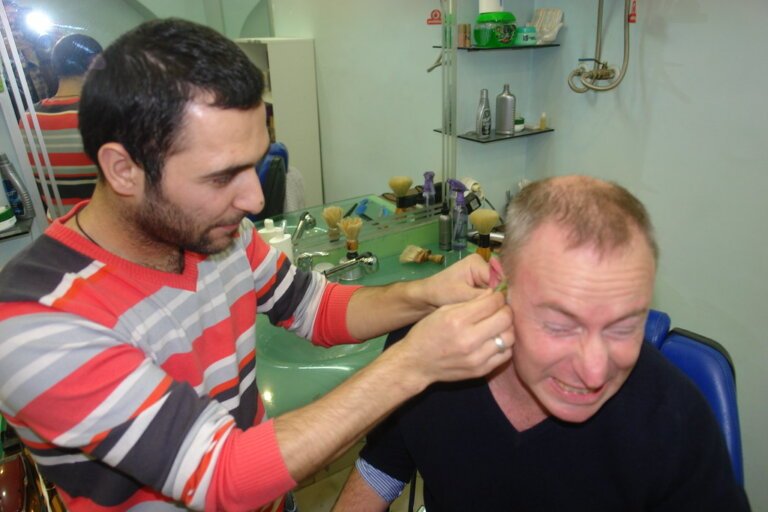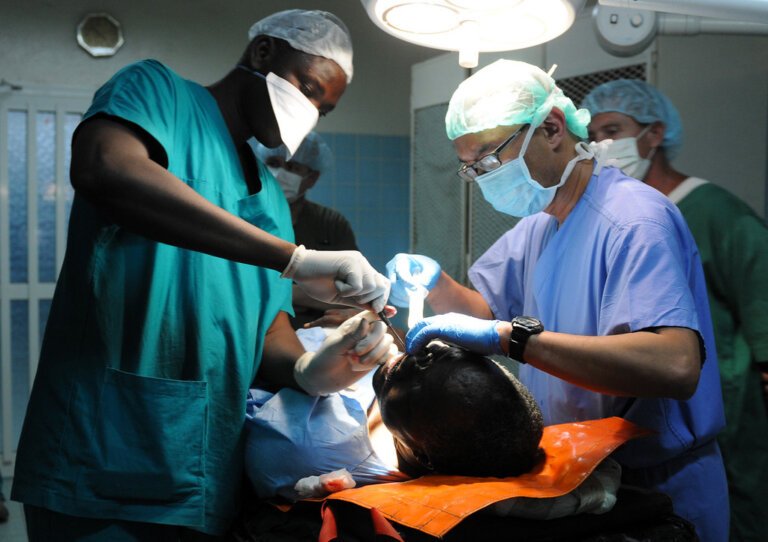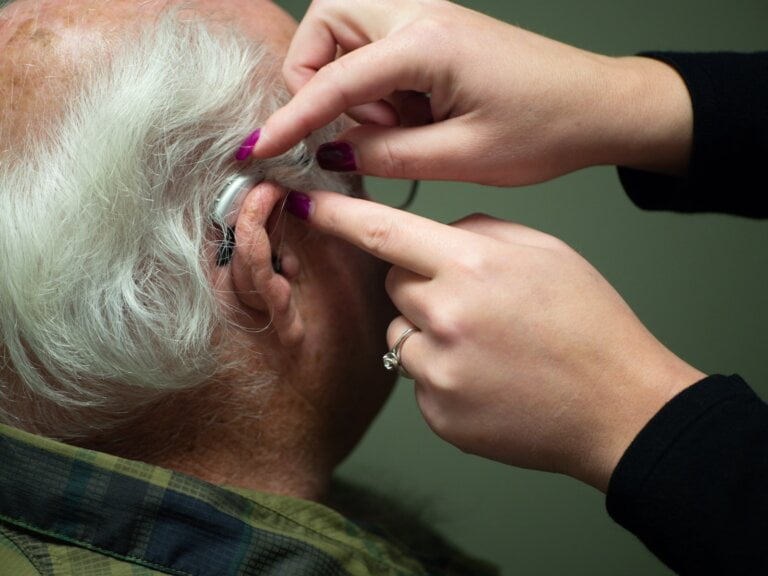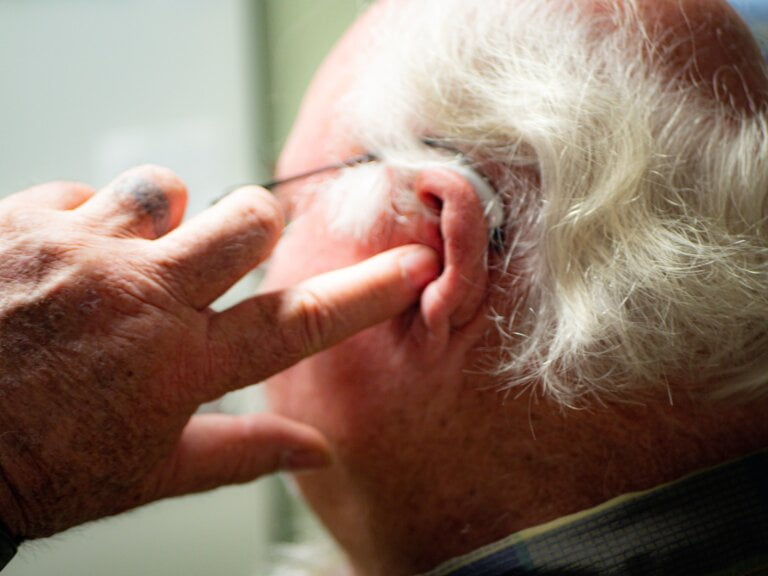Career Pathways: Exploring Job Opportunities in the Microsuction Industry
Last Updated on 25th April 2024 by Admin
Microsuction, also known as aural microsuction or earwax removal, is a specialized medical procedure that involves removing excess earwax and debris using a suction device. This safe and effective technique has gained popularity as an alternative to traditional ear syringing or irrigation methods. As the demand for microsuction continues to rise, so do the job opportunities in this industry. In this article, we will explore the various career pathways available in the microsuction industry and delve into the skills and qualifications required for each role.
Audiologist
Audiologists play a vital role in the microsuction industry. They are healthcare professionals who specialize in evaluating, diagnosing, and treating hearing loss and other auditory disorders. In addition to their primary responsibilities, audiologists often incorporate microsuction as part of their practice to remove excessive earwax, which can contribute to hearing loss or discomfort. This procedure helps improve the overall hearing health of patients.
To become an audiologist, one must typically complete a Doctor of Audiology (Au.D.) program, which includes coursework in anatomy, physiology, acoustics, and audiology. This extensive educational background equips audiologists with the knowledge and skills necessary to diagnose and treat various hearing-related conditions. Additionally, audiologists must obtain a license to practice in their respective state or country. Strong communication skills, attention to detail, and the ability to work with precision are crucial for success in this role.
Audiologists often work in various settings, including hospitals, clinics, and private practices. They collaborate with other healthcare professionals to provide comprehensive care to patients with hearing disorders. Audiologists may also specialize in specific areas, such as pediatric audiology, cochlear implants, or tinnitus management, further expanding their career opportunities in the field.
Skills and Qualifications for Audiologists:
- Completion of a Doctor of Audiology (Au.D.) program
- Knowledge in anatomy, physiology, acoustics, and audiology
- Strong communication skills
- Attention to detail
- Precision in work
- License to practice
Ear, Nose, and Throat (ENT) Specialist
ENT specialists, also known as otolaryngologists, are medical doctors who specialize in the diagnosis and treatment of disorders related to the ear, nose, and throat. These specialists often perform microsuction procedures in their practice to address earwax buildup, ear infections, or other ear-related issues. They play a crucial role in providing comprehensive care for patients with various ear conditions.
Becoming an ENT specialist requires completing a Bachelor’s degree, followed by four years of medical school and a five-year residency program in otolaryngology. This extensive training equips ENT specialists with a deep understanding of the complex anatomy and physiology of the ear, nose, and throat. After completing the necessary training, ENT specialists can become board-certified by passing the relevant exams.
Attention to detail, manual dexterity, and a strong understanding of medical procedures are essential qualities for success in this career. ENT specialists must be able to perform microsuction procedures safely and effectively, ensuring the well-being of their patients. They work closely with audiologists and other healthcare professionals to provide comprehensive care for patients with ear-related issues.
Skills and Qualifications for ENT Specialists:
- Completion of a Bachelor’s degree
- Four years of medical school
- Five-year residency program in otolaryngology
- Board certification
- Attention to detail
- Manual dexterity
- Strong understanding of medical procedures
Ear Care Practitioner
Ear care practitioners are professionals who specialize in providing ear care services, including microsuction, to patients. They work under the supervision of audiologists or ENT specialists and assist in the assessment, examination, and treatment of common ear conditions. These practitioners play a crucial role in the frontline care of patients, ensuring their ear health and well-being.
While the specific qualifications and training requirements for ear care practitioners may vary, many pursue formal training programs offered by recognized institutions. These programs often cover topics such as ear anatomy, physiology, infection control, and microsuction techniques. Excellent communication skills, empathy, and a passion for helping patients are important attributes for individuals considering this career pathway.
Ear care practitioners work closely with audiologists and ENT specialists to provide comprehensive care to patients. They assist in conducting assessments, performing examinations, and carrying out treatment procedures, including microsuction. Their role is vital in supporting the overall management of ear-related conditions.
Skills and Qualifications for Ear Care Practitioners:
- Completion of recognized training programs
- Knowledge in ear anatomy and physiology
- Understanding of infection control
- Proficiency in microsuction techniques
- Excellent communication skills
- Empathy
- Passion for helping patients
Microsuction Technician
Microsuction technicians are skilled professionals who specialize in performing microsuction procedures. They work closely with audiologists, ENT specialists, or ear care practitioners to ensure safe and effective earwax removal. Microsuction technicians must have a thorough understanding of ear anatomy and be proficient in using microsuction equipment.
While there are no specific educational prerequisites to become a microsuction technician, completing a training program or certification course in microsuction can greatly enhance one’s knowledge and skills in this field. It is also important for technicians to stay up-to-date with the latest advancements and best practices in microsuction. Attention to detail, good hand-eye coordination, and the ability to work independently are essential qualities for success in this role.
Microsuction technicians are responsible for operating the suction device and performing the procedure under the guidance of audiologists, ENT specialists, or ear care practitioners. They ensure the comfort and safety of patients throughout the process, demonstrating their expertise in the field of microsuction.
Skills and Qualifications for Microsuction Technicians:
- Completion of a training program or certification course in microsuction (recommended)
- Thorough understanding of ear anatomy
- Proficiency in using microsuction equipment
- Keeping up with the latest advancements and best practices in microsuction
- Attention to detail
- Good hand-eye coordination
- Ability to work independently
Training and Certification
For individuals interested in pursuing a career in the microsuction industry, obtaining the necessary training and certification is crucial. Many institutions offer specialized courses and programs that provide comprehensive training in microsuction techniques, ear anatomy, safety protocols, and infection control.
It is recommended to research and choose reputable training programs that offer hands-on practical experience and are recognized by relevant professional organizations or regulatory bodies. Certification in microsuction can enhance job prospects and demonstrate a commitment to maintaining high standards of practice.
Continuous learning and professional development are essential in the microsuction industry. Staying updated with the latest developments and advancements in the field ensures the delivery of high-quality care and contributes to the overall well-being of patients seeking ear care services.
Conclusion
The microsuction industry offers a range of exciting career opportunities for individuals interested in ear care and audiology. Whether you aspire to become an audiologist, ENT specialist, ear care practitioner, or microsuction technician, each role plays a valuable part in providing safe and effective earwax removal services to patients.
By acquiring the necessary qualifications and skills through education, training, and certification, you can pave the way for a successful career in the microsuction industry. Continuous professional development and staying updated with the latest developments in the field will ensure the delivery of high-quality care and contribute to the overall well-being of patients seeking ear care services.
1. What is microsuction and how does it work?
Microsuction is a specialized medical procedure that involves removing excess earwax and debris using a suction device. It is a safe and effective alternative to traditional ear syringing or irrigation methods.
2. What qualifications do I need to become an audiologist?
To become an audiologist, you typically need to complete a Doctor of Audiology (Au.D.) program. This program includes coursework in anatomy, physiology, acoustics, and audiology. Additionally, audiologists must obtain a license to practice in their respective state or country.
3. What are the qualifications required to become an ENT specialist?
To become an ENT specialist, you need to complete a Bachelor’s degree, followed by four years of medical school and a five-year residency program in otolaryngology. After completing the necessary training, ENT specialists can become board-certified by passing relevant exams.
4. What skills are important for a microsuction technician?
Microsuction technicians need a thorough understanding of ear anatomy and proficiency in using microsuction equipment. Attention to detail, good hand-eye coordination, and the ability to work independently are also essential qualities for success in this role.







